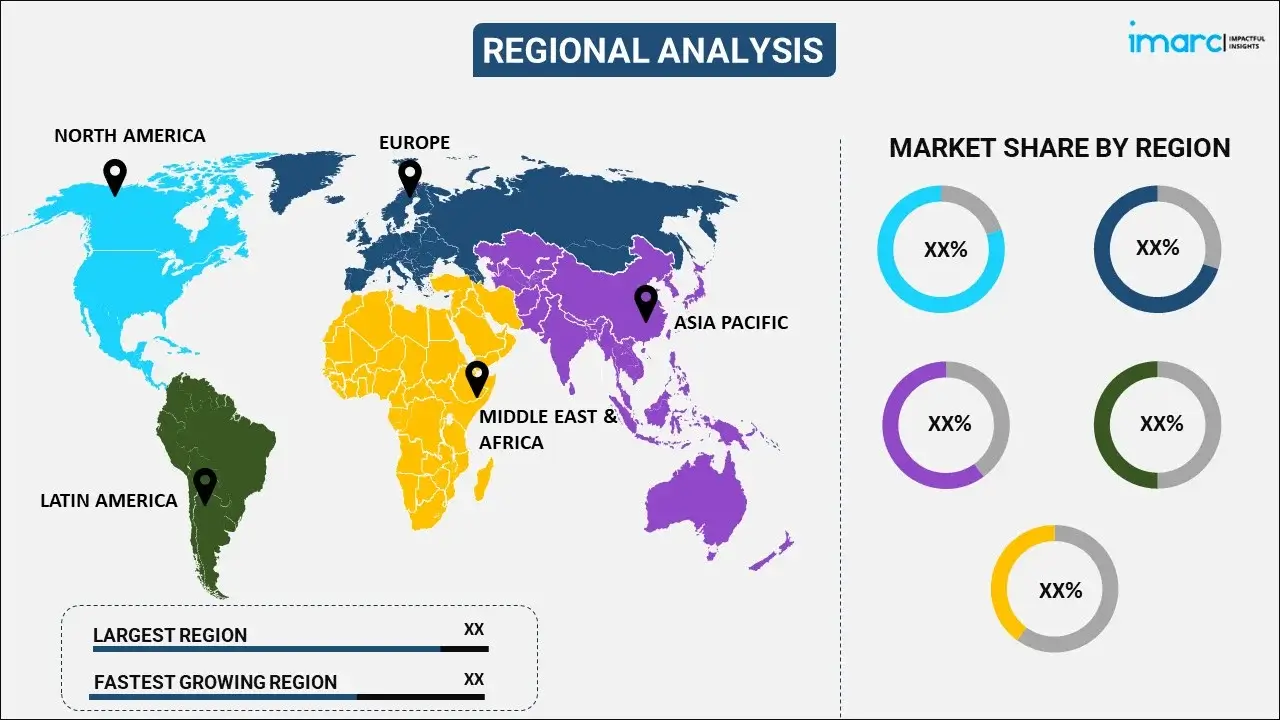
Urethral Dilators Market Report by Usage (Disposable, Reusable), Application (Urethral Stricture, Meatal Stenosis, Kidney Stone Removal, and Others), End User (Hospitals, Clinics, Ambulatory Surgical Center, Home Care Settings), and Region 2025-2033
Market Overview:
The global urethral dilators market size reached USD 251.1 Million in 2024. Looking forward, IMARC Group expects the market to reach USD 387.1 Million by 2033, exhibiting a growth rate (CAGR) of 4.92% during 2025-2033. The rapid technological advancements, increasing prevalence of urological conditions, growing preference for non-invasive or minimally invasive (MI) treatment, ongoing research and development (R&D) efforts and significant growth in the healthcare industry are some of the major factors propelling the market.
|
Report Attribute
|
Key Statistis
|
|---|---|
|
Base Year
|
2024 |
|
Forecast Years
|
2025-2033
|
|
Historical Years
|
2019-2024
|
| Market Size in 2024 | USD 251.1 Million |
| Market Forecast in 2033 | USD 387.1 Million |
| Market Growth Rate 2025-2033 | 4.92% |
Urethral dilators are medical instruments designed to expand the urethral passage, facilitating the diagnosis and treatment of various urological conditions. They consist of the dilator body, handle, and lubricant to aid the process. They are utilized in treating urethral strictures and urinary tract infections, facilitating catheterization, easing pain during urination, prostate gland examination, surgical preparations, and urine flow in cases of inflammation. The benefits of urethral dilators encompass improved patient comfort, minimization of urinary complications, customization for different patient needs, effective treatment of various urological issues, ease of use for medical professionals, and cost-effectiveness. The advantages include reduced need for surgery, flexibility in treatment, minimal invasiveness, low risk of infection, suitability for outpatient settings, ability to treat multiple conditions, and a valuable tool for early intervention in urological conditions. Urethral dilators offer a comprehensive solution for urologists and patients, addressing numerous medical needs with efficiency and versatility.

The increasing prevalence of urinary tract infections (UTI), urethral strictures, and other related disorders are major factors driving the market growth. Additionally, rapid technological advancements and innovations in design and materials, such as the development of silicone dilators, making the devices more effective and user-friendly, are propelling the market growth. Besides this, the growing awareness among patients and healthcare providers about the benefits of urethral dilators is fostering the market growth. In addition to this, the rising geriatric population leading to an increased risk of urological issues, driving the need for these medical instruments is providing a thrust to the market growth. Moreover, the growing investment in healthcare facilities and the expansion of medical services across the globe are favoring the market growth. Furthermore, the increasing government regulations and reimbursements encouraging the adoption of these devices are supporting the market growth. Apart from this, the sudden shift towards minimally invasive (MI) treatments, which include using urethral dilators, making these tools more appealing to patients and medical professionals is positively impacting the market growth. In confluence with this, the harmonization of healthcare practices and standards across different regions, leading to a more uniform adoption of tools like urethral dilators, is providing a considerable boost to the market growth.
Urethral Dilators Market Trends/Drivers:
Increasing prevalence of urological disorders
The rise in urological disorders such as UTIs, urethral strictures, and benign prostatic hyperplasia is propelling the market growth. Besides this, the increasing need for accurate diagnosis and effective treatment of these disorders is providing a thrust to the market growth. In line with this, the growing reliance of healthcare providers on MI techniques, such as urethral dilation, which offers quicker recovery times and less discomfort for the patient, is creating a positive outlook for the market growth. Moreover, the increasing awareness campaigns by governments and health organizations, enhancing the understanding and acceptance of these treatment methods, is positively impacting the market growth. Furthermore, the growing emphasis on a patient-centric approach in modern healthcare, considering the patient's comfort and the efficiency of treatments like urethral dilation, is also strengthening the market growth.
Rapid technological advancements
The rapid evolution of technological advancements in urethral dilators is playing a major role in driving the market growth. In line with this, the increasing investments by manufacturers in research and development (R&D) to create more user-friendly and effective dilators is providing a considerable to the market growth. Besides this, the development of new materials, such as silicone, which offers better flexibility and comfort during the procedure, is supporting the market growth. Furthermore, continuous innovations in design, such as ergonomic handles and smoother insertion mechanisms, making the process more efficient for healthcare professionals, are positively impacting the market growth. Moreover, the development of customized dilators, catering to individual patient needs, and enhancing therapeutic outcomes are favoring the market growth. Furthermore, the integration of technology, such as guided imaging, enabling more precise and safer procedures, is creating a positive outlook for the market growth. Along with this, the increasing collaboration between research institutions and industry leaders to foster innovation is providing an impetus to the market growth.
Growing awareness and medical education
The increasing awareness and medical education regarding urological conditions and their treatments are creating a positive outlook for the market growth. In line with this, the growing efforts to educate healthcare professionals about the benefits and applications of urethral dilators by conducting workshops, seminars, and online resources are providing a considerable boost to the market growth. Along with this, the growing public awareness campaigns educating patients about available treatments, including the use of urethral dilators, vital in removing stigma and fear associated with the procedures and encouraging more people to seek timely and appropriate care, are supporting the market growth. Moreover, the increasing collaboration between healthcare institutions, governments, and non-government organizations (NGOs) in promoting these practices that reflect a cohesive approach to enhancing urological care is propelling the market growth.
Urethral Dilators Industry Segmentation:
IMARC Group provides an analysis of the key trends in each segment of the global urethral dilators market report, along with forecasts at the global, regional, and country levels for 2025-2033. Our report has categorized the market based on usage, application and end user.
Breakup by Usage:

- Disposable
- Reusable
Disposable dominate the market
The report has provided a detailed breakup and analysis of the market based on the usage. This includes disposable and reusable. According to the report, disposable represented the largest segment.
Disposable urethral dilators are dominating the market as they eliminate the risk of cross-contamination between patients. Additionally, they ensure that there is no transmission of bacteria or viruses between patients. Besides this, disposable dilators offer convenience as they do not require sterilization after each use, saving time and reducing labor and costs. It streamlines the workflow in busy medical settings, allowing healthcare professionals to focus more on patient care. Moreover, the consistent quality of disposable dilators is appealing to healthcare professionals as it ensures uniformity in performance, enhancing the confidence of professionals in the tools they are using. Furthermore, disposable dilators are manufactured with user-friendly designs and materials that cater to patient comfort and offer ease of use for medical practitioners.
Breakup by Application:
- Urethral Stricture
- Meatal Stenosis
- Kidney Stone Removal
- Others
Urethral Stricture hold the largest share in the market
A detailed breakup and analysis of the market based on the application has also been provided in the report. This includes urethral stricture, meatal stenosis, kidney stone removal and others. According to the report, urethral stricture accounted for the largest market share.
The increasing application of urethral dilation in the treatment of urethral stricture is contributing to the market growth. Urethral stricture refers to the narrowing of the urethra, often caused by inflammation, injury, or infection, leading to significant discomfort, difficulties in urination, and potential kidney problems if left untreated. The application of urethral dilators in treating strictures is widely recognized for its effectiveness and minimal invasiveness. Besides this, the rise in global awareness and understanding of urethral strictures has led to increased diagnosis and treatment, further contributing to the growth of this application segment. Early intervention with urethral dilators can prevent more severe complications, emphasizing their importance in urological care. Furthermore, the continuous advancement in the design and technology of urethral dilators, enhancing their application in treating strictures, make them an integral part of modern urological practice.
Breakup by End User:
- Hospitals
- Clinics
- Ambulatory Surgical Center
- Home Care Settings
Hospitals hold the largest share in the market
A detailed breakup and analysis of the market based on the end user has also been provided in the report. This includes hospitals, clinics, ambulatory surgical center and home care settings. According to the report, hospitals accounted for the largest market share.
The availability of specialized urology departments and the prevalence of conditions requiring urethral dilation make hospitals a primary location for these tools. Moreover, hospitals typically have a higher concentration of technical medical staff, including urologists, skilled in using urethral dilators, ensuring that patients receive optimal care, particularly in complex or severe cases. Additionally, hospitals offer a wide range of facilities and services, such as imaging and laboratory diagnostics, that support the successful use of urethral dilators. Besides this, the increasing patient volume in hospitals, corresponding with a greater need for diagnostic and therapeutic procedures, including urethral dilation, is a major contributor to the market growth. Furthermore, hospitals are often at the forefront of adopting new technologies and practices, prompting the integration of the latest urethral dilators that align with the hospitals' commitment to providing cutting-edge care.
Breakup by Region:

- North America
- United States
- Canada
- Europe
- Germany
- France
- United Kingdom
- Italy
- Spain
- Others
- Asia Pacific
- China
- Japan
- India
- South Korea
- Australia
- Indonesia
- Others
- Latin America
- Brazil
- Mexico
- Others
- Middle East and Africa
North America exhibits a clear dominance, accounting for the largest urethral dilators market share
The market research report has also provided a comprehensive analysis of all the major regional markets, which include North America (the United States and Canada); Europe (Germany, France, the United Kingdom, Italy, Spain, Russia, and others); Asia Pacific (China, Japan, India, South Korea, Australia, Indonesia, and others); Latin America (Brazil, Mexico, and others); and the Middle East and Africa. According to the report, North America accounted for the largest market share.
The technologically advanced and well-developed healthcare system in North America provides an environment conducive to adopting and utilizing innovative medical tools like urethral dilators. Moreover, the increasing awareness about urological disorders and the importance of early diagnosis and treatment is relatively high in this region. Besides this, the growing lifestyle changes, rising geriatric population, and genetic predispositions in North America have led to a higher incidence of urological conditions, driving the demand for effective treatment. Additionally, the region’s regulatory framework supports medical innovation and safety, facilitating the development, approval, and adoption of new and improved urethral dilators. Furthermore, North American healthcare facilities have the means to invest in the latest medical technologies, contributing to the regional dominance in the market. Apart from this, comprehensive insurance coverage and healthcare policies in North America often cover procedures involving urethral dilators, making them accessible to a broader population.
Competitive Landscape
The leading companies are continuously working on developing new materials, designs, and technologies for urethral dilators. These innovations are focused on enhancing patient comfort, providing more precise control to medical professionals, and improving overall effectiveness. Additionally, they are entering new geographical markets and strengthening distribution channels, aiming to increase their global presence, which includes partnerships with local distributors, online marketing, and establishing direct sales channels. Besides this, the leading firms are investing significantly in research and development (R&D) to stay at the forefront of technology and medical advancements. This investment fuels the creation of next-generation urethral dilators and contributes to maintaining a competitive edge. Along with this, key companies are working to adhere to various international and local regulatory guidelines, ensuring that their products are safe and effective. Moreover, the key players are collaborating with research institutions, healthcare providers, and other companies, which enables the sharing of expertise and resources. These collaborations often lead to the development of unique solutions and the rapid adoption of new technologies. Furthermore, many companies are offering education and training programs for healthcare professionals by facilitating proper training, ensuring that medical staff are proficient in using their products. In addition to this, some firms are focusing on sustainability, producing eco-friendly products, and implementing responsible manufacturing practices, resonating with the growing global emphasis on environmental consciousness.
The report has provided a comprehensive analysis of the competitive landscape in the market. Detailed profiles of all major companies have also been provided. Some of the key players in the market include:
- ACE Medical Devices Pvt. Ltd.
- Advin Health Care
- Coloplast Ltd
- Cook Medical
- Med pro Medical B.V.
- Teleflex Incorporated
Urethral Dilators Market Report Scope:
| Report Features | Details |
|---|---|
| Base Year of the Analysis | 2024 |
| Historical Period | 2019-2024 |
| Forecast Period | 2025-2033 |
| Units | Million USD |
| Scope of the Report | Exploration of Historical and Forecast Trends, Industry Catalysts and Challenges, Segment-Wise Historical and Predictive Market Assessment:
|
| Usages Covered | Disposable, Reusable |
| Applications Covered | Urethral Stricture, Meatal Stenosis, Kidney Stone Removal, Others |
| End Users Covered | Hospitals, Clinics, Ambulatory Surgical Center, Home Care Settings |
| Regions Covered | Asia Pacific, Europe, North America, Latin America, Middle East and Africa |
| Countries Covered | United States, Canada, Germany, France, United Kingdom, Italy, Spain, China, Japan, India, South Korea, Australia, Indonesia, Brazil, Mexico |
| Companies Covered | ACE Medical Devices Pvt. Ltd., Advin Health Care, Coloplast Ltd, Cook Medical, Med pro Medical B.V., Teleflex Incorporated |
| Customization Scope | 10% Free Customization |
| Post-Sale Analyst Support | 10-12 Weeks |
| Delivery Format | PDF and Excel through Email (We can also provide the editable version of the report in PPT/Word format on special request) |
Key Questions Answered in This Report:
- How has the global urethral dilators market performed so far, and how will it perform in the coming years ?
- What are the drivers, restraints, and opportunities in the global urethral dilators market ?
- What is the impact of each driver, restraint, and opportunity on the global urethral dilators market ?
- What are the key regional markets ?
- Which countries represent the most attractive urethral dilators market ?
- What is the breakup of the market based on the usage ?
- Which is the most attractive usage in the urethral dilators market ?
- What is the breakup of the market based on the application ?
- Which is the most attractive application in the urethral dilators market ?
- What is the breakup of the market based on the end user ?
- Which is the most attractive end user in the urethral dilators market ?
- What is the competitive structure of the global urethral dilators market ?
- Who are the key players/companies in the global urethral dilators market ?
Key Benefits for Stakeholders:
- IMARC’s industry report offers a comprehensive quantitative analysis of various market segments, historical and current market trends, market forecasts, and dynamics of the urethral dilators market from 2019-2033.
- The research report provides the latest information on the market drivers, challenges, and opportunities in the global urethral dilators market.
- The study maps the leading, as well as the fastest-growing, regional markets. It further enables stakeholders to identify the key country-level markets within each region.
- Porter's five forces analysis assist stakeholders in assessing the impact of new entrants, competitive rivalry, supplier power, buyer power, and the threat of substitution. It helps stakeholders to analyze the level of competition within the urethral dilators industry and its attractiveness.
- Competitive landscape allows stakeholders to understand their competitive environment and provides an insight into the current positions of key players in the market.
Need more help?
- Speak to our experienced analysts for insights on the current market scenarios.
- Include additional segments and countries to customize the report as per your requirement.
- Gain an unparalleled competitive advantage in your domain by understanding how to utilize the report and positively impacting your operations and revenue.
- For further assistance, please connect with our analysts.
 Request Customization
Request Customization
 Speak to an Analyst
Speak to an Analyst
 Request Brochure
Request Brochure
 Inquire Before Buying
Inquire Before Buying




.webp)




.webp)












